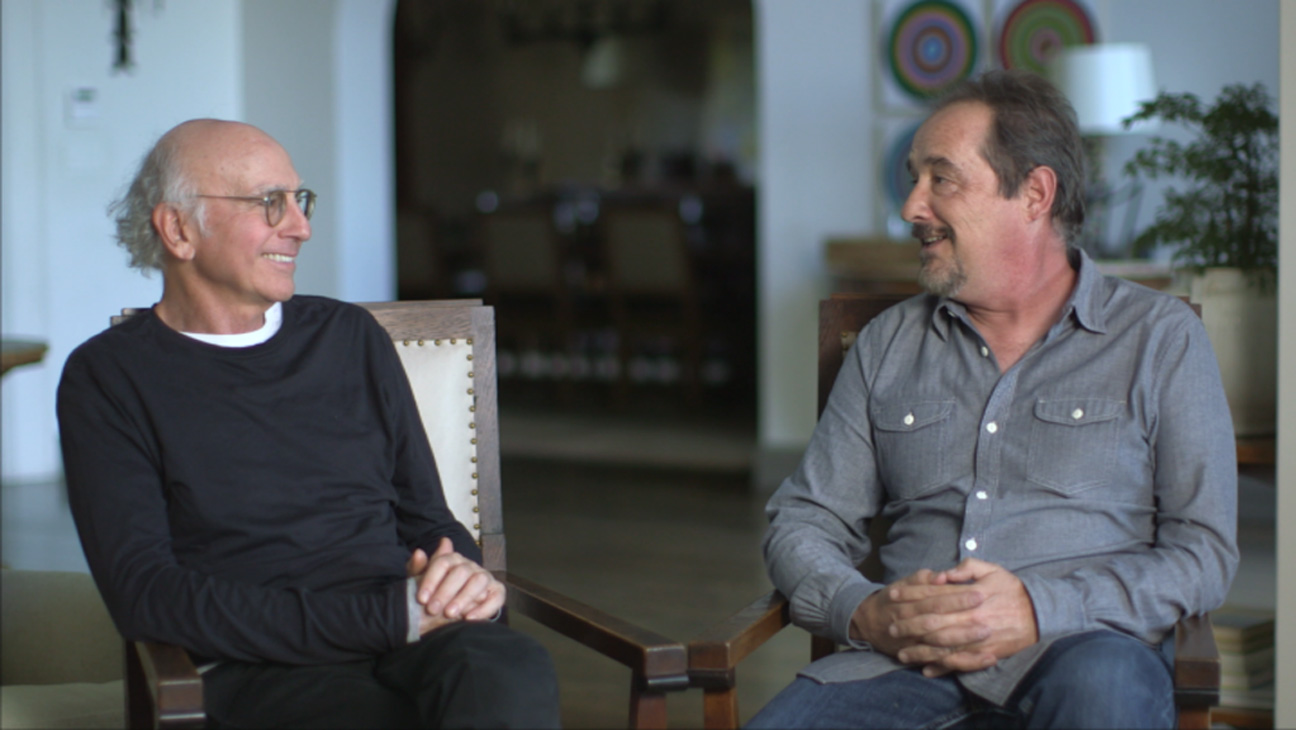
I saw two separate movies playing at the Santa Barbara International Film Festival that are so similar in theme that I have to review them together. The first is WHERE HAVE YOU GONE LOU DIMAGGIO, about the desire for Lou DiMaggio, a comedian in the New York scene in the late 80s, to get back into stand-up. The second is EVERY 40 YEARS, about the reunion of a band, Gunhill Road who had a top 40 hit in the 70s. Both films feature subjects who found success at an early age, yet as time wore on, they wandered way from those early passions. Now as they are looking at the waning days of middle age, they are looking to recapture a bit of what brought them true happiness. Neither of the subjects here was big enough to have any serious demand for a comeback. Will anyone even care?
Lou DiMaggio was a staple and frequent host at the comedy club CATCH A RISING STAR in New York in the late 80s. A ton of top talent went through there, including Jeff Garland, Larry David, Suzie Essman, Richard Belzer, Colin Quinn, Howie Mandel, Kevin Meaney, and others, all of whom are in the film. Lou eventually moved out to LA, got some writing gigs, and occasionally showed up as a character actor on some TV shows. But some time into the 90s he just stopped doing stand-up.
The film intercuts interviews with DiMaggio, his wife, and pals from those days, with footage of stand-up from the time period. Where the film succeeds is in seeing some of these giants of comedy tell old stories and reflect on what it was like to break through in the stand-up universe. It isn’t the case that you are just funny and get discovered. The business is a grind. And when you’re a regular at a comedy club, you have to be constantly generating new material.
My favorite scene is seeing Jeff Garland basically leveling with Lou DiMaggio, telling him he’s nuts to try to get back into comedy. There’s no demand for him out there, and it is now a young person’s game. Indeed, DiMaggio’s first gig back, at the Upright Citizens Brigade, is pretty sad. There’s almost no one in the audience, and he doesn’t exactly kill it.
There are two kinds of movies that play smaller festivals like Santa Barbara — those that got made because they have a compelling story and attracted talent and financing, and vanity pieces that got made because people have connections in the industry. This is the latter, which usually means it will be awful. But what saves WHERE HAVE YOU GONE LOU DIMAGGIO is the warts-and-all portrayal of how difficult it is to make it in comedy. Nobody owes you anything. Maybe if you’re famous people will cut you a bit of slack, but if you aren’t, forget it. We have too much positive self esteem bullshit in our culture. I’d rather see the cruel world as it really is. I’m not necessarily saying this documentary ends on a sad note — you’ll have to see it to figure that out. I’m just saying the moments of brutal honesty are where the film shines. Lou DiMaggio is moderately funny, but it’s his balls that make him worth watching.
EVERY 40 YEARS explores remarkably similar territory about the journey of a band to quick, moderate success, their decline, and ultimate desire for a comeback. The band, Gunhill Road was discovered in New York, and started getting airplay in some of the radio stations there. Their first album was a well received critically, and one of their songs even made it into the top 40. But after fighting with their record label, and a few changes of membership in the band, they just kind of faded away. The members of the band took up other careers, and now in retirement age some haven’t even played music in decades. A party for their old manager serves as an excuse to get the band back together, but not every member is on board.
EVERY 40 YEARS doesn’t have the star power of WHERE HAVE YOU GONE LOU DIMAGGIO, nor does it have the hubris. These guys don’t seem to be under any illusions that they are going to somehow break through now, but they are just getting back together to make music because it is fun. Here again, it is their humanity that makes for the most interesting moments. One member of the band can’t get past his dislike of the manager to play again. The others are nervous about playing again and making fools of themselves. It serves as a reminder that while music can bring people together, fame, missed opportunities, and bitterness can tear them apart.
To its credit, the film doesn’t go out of its way to build drama. But the flip side is that there isn’t much. The film plays like a lightweight version of BEHIND THE MUSIC, about a band you’ve never heard of. That isn’t necessarily a bad thing. These guys aren’t music gods, they’re just normal people, and as a result are much more relatable. Everybody gets old, and few really achieve their dreams. Or some do, but then they find them slip away. The real question here is how we deal with the hand life deals us. When we’re younger, everyone tells us to prepare for success. But the real thing we should be learning is how to deal with failure. Hollywood likes to sell us a big lie that we’re all going to be superstars. I’m glad to see a couple of films dealing with the consequences, and limits, of that mythmaking.
